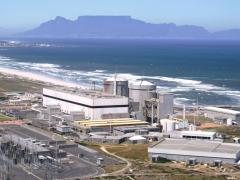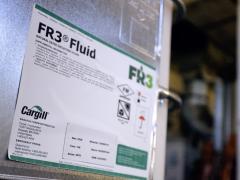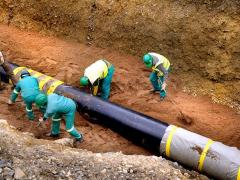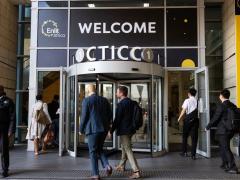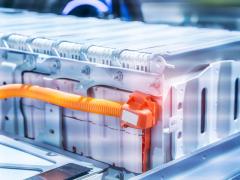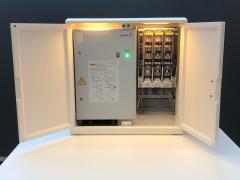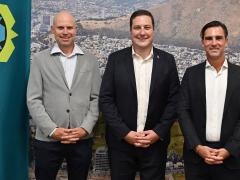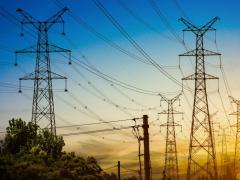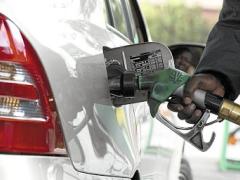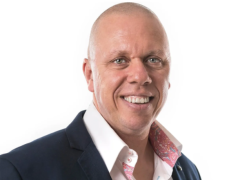The 26th International Conference & Exhibition on Electricity Distribution will be hosted virtually this year, providing anyone the opportunity to attend from anywhere in the world, all from the comfort of your own device.
CIRED 2021 is your opportunity to hear new research, ideas and initiatives; and interact with hundreds of key decision leaders in the electricity distribution field.
You will have the chance to network with a wide range of delegates from the utility, product, consultancy, service and business sectors of the distribution industry.
CIRED online
Due to the continuing uncertainties around the Covid-19 pandemic, CIRED has taken the decision to move to a fully virtual conference.
Making this decision now will enable us plenty of time to create a virtual conference that offers a high-quality experience for everyone, and also ensures we can protect the health and safety of all our visitors and staff which is our number one priority.
Moving to a virtual environment still provides lots of exciting opportunities for the global electricity distribution community and enables us to continue to provide you with the cutting-edge research, high quality content and great networking opportunities that CIRED is renowned for. We are looking forward to sharing more details on the virtual conference with you soon, so keep an eye out on the website and our social media channels for more information.
Although we had hoped to meet together in Geneva this September, we hope you understand and support our decision and we look forward to welcoming you to CIRED 2021 in September!
Tutorials
A series of tutorials will be held on Monday 20 September 2021, prior to the start of the opening forum (09:15 to 13:45, followed by a lunch). Places are strictly limited and should be booked in advance.
Main sessions
CIRED 2021’s main technical sessions are divided into six sessions which represent different areas of the power distribution industry, and each covers a range of critical topics:
Session 1: Network components
Session 1 deals with all aspects related to the components used in the electricity distribution networks: cables, overhead lines, primary and secondary substations, transformers, switchgear plus their control, protection and monitoring systems, new active power electronics devices.
It covers topics related to the life cycle optimisation of assets from design through installation, operation and maintenance, monitoring and diagnosis, to end of life management, including new techniques such as big data and artificial intelligence. The session also covers environmental aspects including eco-design and life cycle analysis, standardisation, ergonomics and safety.
It aims to provide an overview of the state-of-the-art in component design and proposals for future components, including the ones needed for smartgrids, e-mobility, smart cities and microgrids. This session is an opportunity for distribution system operators (DSOs) and manufacturers to share their objectives.
Session 2: Power quality and electromagnetic compatibility
Session 2 deals with all phenomena related to power quality (PQ). This includes flicker, unbalance and distortion in the frequency range up to 500 kHz.
The session covers all aspects of electromagnetic compatibility (EMC) including emission, immunity and its coordination and standardisation. Conducted and radiated electromagnetic interferences as well as electric and magnetic fields (EMF) issues are also addressed. Specific focus is put on the PQ characteristic of modern power electronic devices and PQ challenges related to the operation of distribution grids with very high share of power electronics.
Furthermore, new measurement techniques, analysis of big PQ data and the management of PQ at the interface between distribution system operators (DSOs) and transmission system operators (TSOs) are important topics for Session 2. Beside application examples and case studies, new modelling approaches and system simulation studies are covered.
Session 3: Operation, control, and protection
Session 3 traditionally deals with the operation of distribution networks, including control technology and system protection, which is a more and more challenging topic in the emerging environment of digitalisation, smart grids, distributed generation and e-mobility.
The relevant technical and economic targets of distribution grid operators, the expectations and requirements of stakeholders, as well as solution strategies of scientists and manufacturers’ new products will be presented and discussed in Session 3.
Both recent practical experiences and the results from current research as the basis of future developments are very welcome.
Session 4: Distributed energy resources and efficient utilisation of electricity
Session 4 deals with the challenges of adapting distribution networks to facilitate the efficient integration of low carbon, renewable and Distributed Energy Resources (DER), from the integration perspective.
These include distributed generation (DG), energy storage, new loads (e.g. electric heating and electric vehicles (EVs)), active demand and aggregation of DER (e.g. Virtual Power Plants). DER integration challenges are likely to feature across all CIRED sessions, so Session 4 specifically focuses on emerging technologies and solutions, results from research, development, or demonstration programmes with results from network and system integration trials being particularly valued.
Session 4 papers will highlight the integration of DER within distribution networks through technical, commercial, and regulatory solutions. Papers may describe developments in network management, demand side response, energy storage integration, efficient utilisation of electricity, network monitoring, telecommunications and data analytics and the role of DER in wider DSO business operations.
Also within the scope of Session 4 is whole energy system optimisation (including integration across other infrastructure systems and energy vectors), efficient management of network losses and the results from the larger smart grid demonstration projects.
Session 5: Planning of power distribution systems
Session 5 deals with all aspects related to the short and long term development of high, medium and low voltage distribution networks, with reference to the changing requirements for electricity distribution including, but not limited to, smart grids and active distribution networks, electric vehicles, storage, active demand and distributed energy resources integration, present and future customer quality of supply requirements, and optimum asset utilisation techniques and strategies.
There is increasing interest in strategies designed to meet the rapidly changing level of demand in both rural and urban areas, the extension of electrification in rural areas requiring a high quality of supply, and development strategies intended to increase resiliency against low probability high risk extreme events.
Session 6: DSO customers, regulation and business models
Session 6 focuses on a future electrical system with new business models, active customers, flexibility, risk management and digitalisation as key parts of the energy transition.
Future regulation needs to foster and enable R&D and investments in new marketplaces and network services, when microgrids and energy communities open the door for the mass-roll-out of e-mobility, local energy optimisation and local markets. Security and privacy by design must have high priority in the light of ongoing digitalisation, where security of supply, customer data, new data platforms and IoTs are being challenged by the cyber threat.
At the same time the asset/risk management and business optimisation is still key for the DSO. Ageing networks need to be replaced in the near future. But what impacts, strategic choices, options and limitations are crucial for the DSO to understand and handle when the future is changing?


